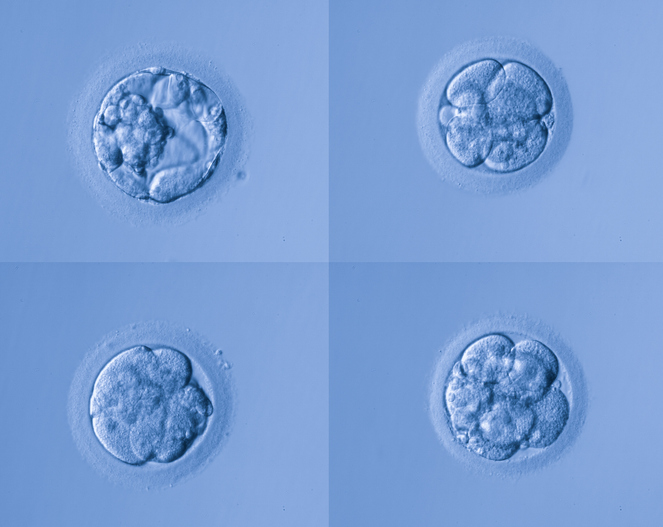.png)
.png)
Egg donation is a medical procedure by which a qualified egg donor donates their eggs to a family that can’t otherwise conceive. There are various reasons a family may need donor eggs, from infertility to cancer treatments to being LGBTQ+. Egg donors give these families the opportunity to become parents.
If you are already an egg donor and considering donating again, or if you’re considering donating for the first time, you may be wondering how many times you can donate your eggs.
While there’s no limit on how many times you can freeze your eggs, there are industry guidelines that United States clinics follow on how many times you can donate. In this article, we’ll dive into everything you need to know.
How long is the egg donation process?
If you freeze your eggs with Cofertility's Split Program, where you get to keep half of the eggs retrieved for free when donating the other half, you can think about the process as two parts: before and after you match with a family.
The time to match with a family can vary; some donors match within a few days while some it can take several months. You can increase your chances of matching by ensuring your application is comprehensive and shows off your personality, accomplishments, and motivations for joining Cofertility’s Split program. Additionally the more photos, the better!
After you are matched, you can expect the entire process to take about two to four months. This includes screening, a legal agreement, and the two-week cycle. The timeline can vary based on your schedule, the intended parents schedule, and clinic availability.
Why some people donate eggs multiple times
There are various reasons why some individuals choose to donate their eggs multiple times. For some, egg donation provides an opportunity to help others achieve their dream of starting a family, and the desire to make a significant impact on someone else's life may be a motivating factor.
Some people are drawn to the idea of preserving their own fertility at the same time. At Cofertility, our Split members keep half of the eggs retrieved. By undergoing several cycles, our egg donors can get more control over their own reproductive future.
One study found that people who participate in egg share programs like ours are happy with their decision. In fact, 83.3% would donate again and only 2.1% regret their decision to participate.
How many times can you donate eggs?
The American Society for Reproductive Medicine (ASRM) is an organization that provides guidance and recommendations to fertility clinics and professionals. One of the guidelines that the ASRM has established is regarding the maximum number of egg donation cycles that an egg donor can undergo in their lifetime. According to their recommendations, egg donors should undergo no more than six cycles of egg donation throughout their lifetime.
This recommendation is in place to ensure the safety and well-being of the egg donor, as undergoing multiple cycles of egg donation can increase the chances of potential complications. By setting a limit on the number of cycles, ASRM aims to protect the health of egg donors.
Why can't you donate eggs more than six times?
The reason ASRM recommends six donations maximum is partly to reduce risks for the egg donor, and partly to protect the potential offspring. While ASRM states that “existing data cannot permit conclusive recommendations”, they nonetheless suggest sticking with the number six due to limited data on the long term safety risks of undergoing over six ovarian stimulation cycles.
Egg donor health
Egg freezing is considered a safe procedure. In a single egg freezing cycle, the risk of a serious adverse event is under 2.5%. Severe OHSS accounts for the majority of complications, occuring in 0.1-2% of cycles. The risk of other acute complications, including pelvic infection, intraperitoneal hemorrhage, or ovarian torsion, is small (<0.5%). However, after six cycles, the risk compounds to 8%-13%. Therefore, out of abundance of caution, ASRM recommends capping the procedure to six cycles.
Inadvertent consanguinity
Another reason there are recommended limits on egg (and sperm) donation is because of inadvertent consanguinity. This refers to the accidental conception of a child by closely related individuals. This can occur when undisclosed biological connections exist. The resulting offspring are at risk for genetic disorders and other health complications if they inherit two copies of a recessive gene from the closely related parents.
There are donor registries to help prevent this, but if a parent does not disclose to their child that they are donor-conceived it may still occur. The chances are small in today’s world of genetic testing, but it’s still a consideration.
What disqualifies you from multiple egg donations?
Donating once doesn’t necessarily guarantee you will be able to donate your eggs again. Certain factors can disqualify you from additional egg donations. For instance, if anything major in your medical history has changed like a serious diagnosis or surgery.
Additionally, if your first egg retrieval was unsuccessful (due to low number of eggs or a complication), it’s unlikely you’ll be able to donate again.
Ultimately, the decision to undergo additional egg donation cycles should be made in consultation with a fertility doctor, taking into account the potential risks and benefits for you and the intended parents.
How much time do I have to wait between egg donation cycles?
You may be wondering how long you’ll need to wait between egg freezing and donation cycles, or if you can do them back to back. It is generally recommended to wait at least one menstrual cycle before starting another cycle. Some people like to give their body a break and wait three to six months between cycles, while others prefer to get it over with and complete back to back egg freezing cycles. We suggest talking to your fertility doctor for guidance.
Instead of donating for money, keep half the eggs retrieved
Cofertility’s Split program offers qualified candidates the chance to freeze their eggs for free when donating half to a family who cannot otherwise conceive. If you’re eligible for the program, by meeting Cofertility’s requirements, and decide to donate half of your retrieved eggs, your egg freezing procedure, medications, and ten years of storage will be completely free of charge. We don’t even need a payment or credit card up front, as the family you match with covers all the expenses.
Depending on the number of eggs that you are able to retrieve in the first cycle, you may want to complete a second Split cycle so that you’re donating and keeping a sufficient number of eggs.










